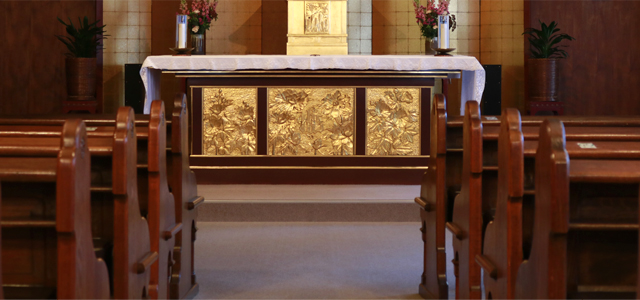
Catholic Q&A
In Christianity, crosses are placed in front of churches. Yet for Japanese people who are familiar with the gentle-faced statues of the Buddha, would it not be something difficult for them to get accustomed to?
It may be as you say. In any religion, the expression of faith is influenced by the mentality of the believers, who have worshiped throughout their long history. Christianity is no exception to this. One may say that Christianity, which developed mainly in Europe, bears the imprints of the forms of devotion, liturgy, and feelings concerning life of the European people, and hence it is not an issue limited just to the statue of Christ on the cross. While in Christianity there are certain magnificent traditions that are worth learning, yet there are also certain aspects we Japanese are not very familiar with.
For example, Churches that grew in Eastern Europe and Russia, which are referred to as the Greek Orthodox Church, are distinguished by the fact that they use flat sacred paintings referred to as icons instead of three-dimensional images, in order to represent figures of Christ and the Saints. Also, they tend to emphasize the resurrected Lord Jesus Christ, and even scenes related to the cross are often depicted in a glorious form. Possibly the icons of the eastern churches have a closer leaning to the Japanese aesthetic sense.
Nevertheless though, the issue if anything is an emotional one. No matter how it is depicted, the fact remains that the cross is the center of the Christian faith. Churches always carry the cross as a symbol, and Christians make the sign of the cross whenever they pray. This is because they believe that it is the cross that brought salvation to our world, it is what redeemed us from the rule of sin and death, and it is a simple expression of the love of God. Christians gazing upon the figure of Jesus suffering on the cross observe therein the mercy of God, who took upon himself our own sufferings. Hence, when we realize that it was an act performed for us, the more miserable it is the more grateful and unrelenting is the feeling that arises within us. When we are confined to bed with a painful illness, or when we are sunk into a state of depression, with no courage or hope to rise again due to the pain we have suffered, the cross is our true foundation, the light that brightens up the darkness.
